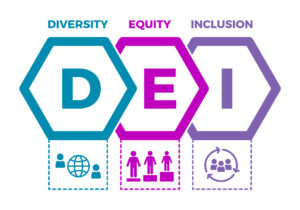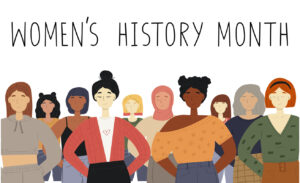Elizabeth Baskin is CEO of Tribe. Read more of her writing on Tribe’s blog.
3 easy ways communicators can support DE&I progress
Even if your role’s not tied to specific equity outcomes, you can still elevate and amplify your colleagues of color. Here’s how to help.

Diversity, inclusion and equity is a much larger movement within a company than just its communications. Or at least it should be.
Ideally, meaningful DE&I activities and metrics are woven throughout the entire employee experience, from recruiting to benefits to leadership development and more. The touchpoints for communicating the company’s commitment to diversity are many, and the process is a long one. Although there’s no instant fix to diversity and inclusion shortcomings, internal communications can provide some immediacy and visibility for the steps along the way.
Here are a few ways internal comms teams can push and promote inclusion in your company:
1. Push for more realistic, representative photography.
Whether you’re using original photography of actual employees (preferred) or stock images, be mindful of the artwork you’re using.
Try to show a diverse range of people that represent not just different skin tones but also different ages and body types. If you’re a global organization, be cognizant of the geographical differences in employees, from how they dress to how they practice their faith.
2. Tell more diverse stories.
One of the best ways to promote inclusion is to build human connections with people who represent various diverse groups at your company.
You can use holidays and cultural heritage months as springboards for stories, but strive to tell more diverse stories year-round. Actively ask a diverse array of employees questions about their childhoods, the hurdles they’ve overcome, what they love about their heritage or history and the things they wish other people understood about them. Dig deeper, and go beyond surface-level, calendar-bound storytelling.
(That’s not to say you should avoid the calendar altogether. If you’re looking for a listing of monthly themes, try the Library of Congress calendar here.)
If you’re a global company, you might find other diversity themes celebrated in different months, but really, the calendar is less important than simply letting employees get to know one of their colleagues more completely. Your company could celebrate any type of diversity in any month without tying it to a specific commemorative month or day.
3. Actively share ERG news and updates.
If your company has active ERGs, they can be rich sources of content about DE&I efforts. Look to them for article ideas or news to share in your existing internal communications channels. Ask them to contribute stories, too. You never know what you’ll get.
Try to cultivate relationships with the leaders of each ERG so that it’s natural for them to share interesting developments with you. If the women’s ERG sponsors a speaker on unconscious bias, or if the LGBTQ+ group is supporting a nonprofit for transgender teens, or if the Asian professional network is hosting a webinar on counteracting AAPI hate, that’s all great content. And covering their efforts bolsters their work, which can fuel employee engagement and establish more genuine connections companywide.
Creating a culture that prioritizes diversity and inclusion takes time, but communicators can help its progress along by keeping it a part of the corporate conversation.






